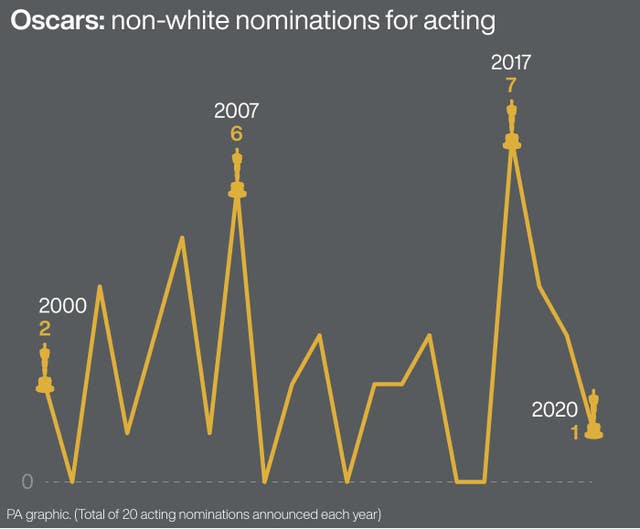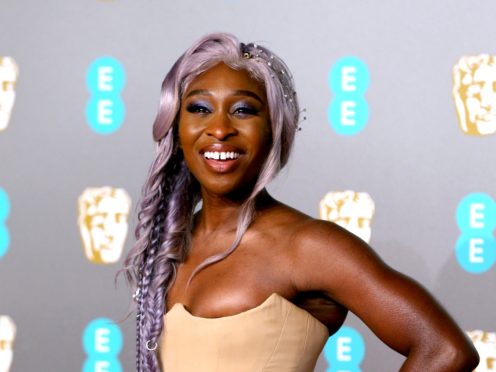This year’s Oscar nominations have avoided the “all-white” controversy that hit the Baftas – but only just.
British star Cynthia Erivo is the one non-white actor to be nominated.
She has been shortlisted in the best actress category for her role in the film Harriet, about the American anti-slavery activist Harriet Tubman.
All the other acting nominees – 19 out of 20 – are white.
Not a single non-white actor received a Bafta film nomination in last week’s list, prompting criticism from across the industry, including from Bafta’s own chief executive Amanda Berry, who said she was “disappointed” by the outcome.
Thanks to Erivo, the Oscars have managed to dodge a similar charge – albeit narrowly.
The event has a very patchy record for recognising diversity among acting.

There was all-white list of Oscar acting nominees in both 2015 and 2016, a move that provoked widespread anger in Hollywood – typified by the high-profile #OscarsSoWhite campaign on Twitter – and led to several stars boycotting the 2016 ceremony.
In response, organisers introduced a number of rule changes concerning the membership of the Academy, the industry-wide body that votes for the Oscars.
In 2017, the year following #OscarsSoWhite, a total of seven of the 20 acting nominations went to non-white actors: a record number.
But in 2018 this slipped to four, in 2019 to three – and in 2020 to just one.
The Oscars have a slightly better track record at diversity than the Baftas, however.
Since 2000, 49 of its 420 acting nominees have been non-white.
The equivalent figure for the Baftas is just 31.
